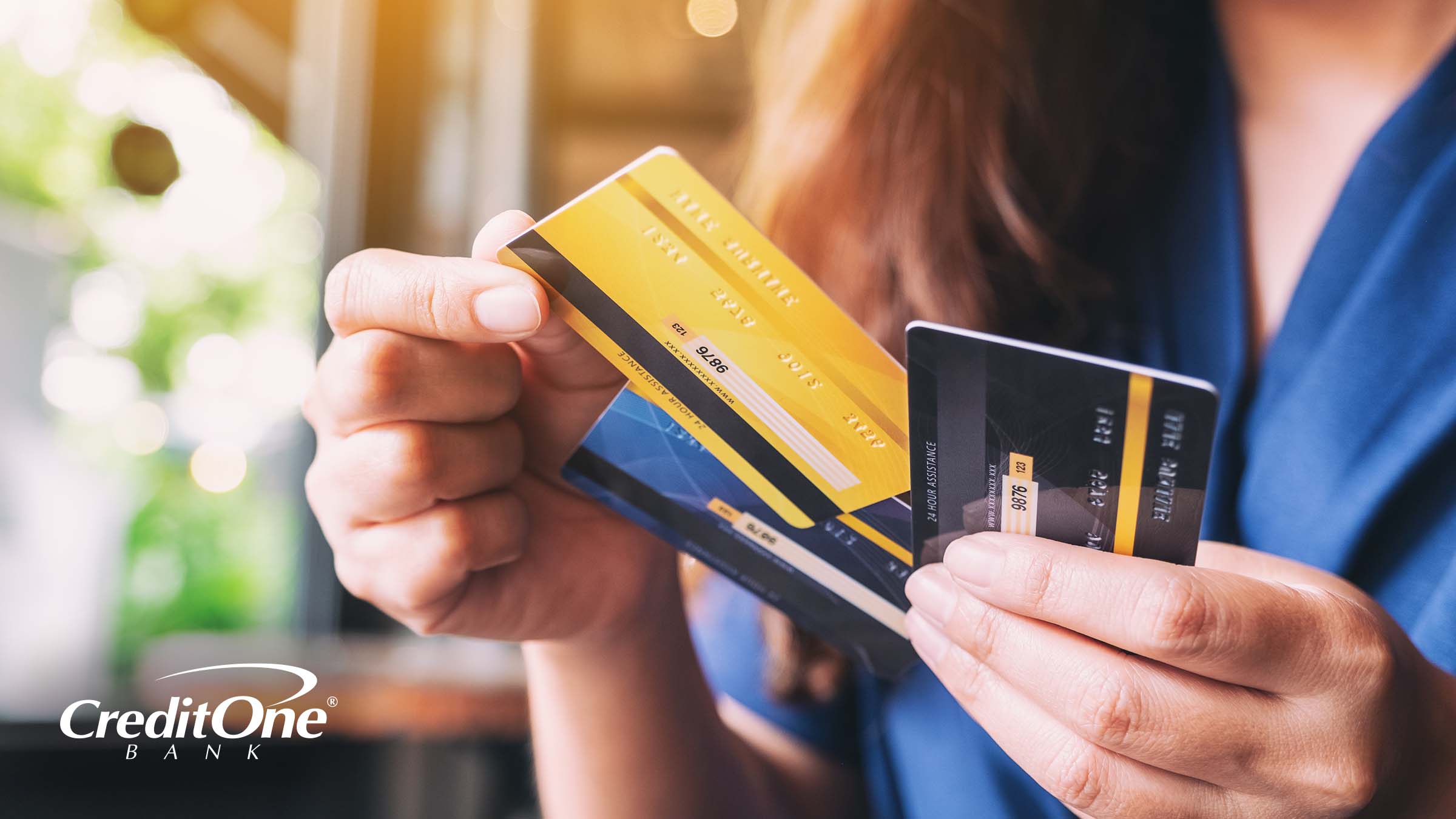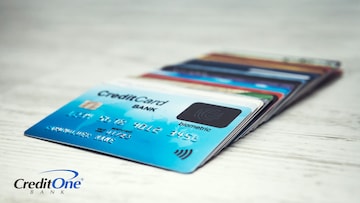Debit Card vs. Credit Card: Which To Choose?
May 06, 2024
There are advantages and disadvantages to both credit and debit cards. The key is knowing when each payment method might best meet your needs.

Overview of Credit Card vs. Debit Card
Sweet or savory? Hot or cold? There are plenty of age-old questions that don’t have a universal answer. One person’s answer may be different from another’s. And for a variety of reasons.
Another question along those lines is whether to use a debit card or a credit card. While they both make it easy and convenient to purchase things, each has advantages and disadvantages to help you choose which works best for you.
The main difference between the two is that a debit card allows you to pull funds directly from a bank account to make a purchase while, with a credit card, you are essentially borrowing money from a credit issuer to make a purchase and then paying the issuer back at a later date.
Looking at the pros and cons of each can help you decide whether a credit card or debit card is the route you want to go when making a purchase. But first, it’s important to understand exactly what they are.
What Is a Credit Card?
While there’s a variety of credit cards on the market, the gist is generally the same — a credit card is a small piece of plastic or metal that enables you to purchase goods and services on credit up to your account’s credit limit.
You then pay the card issuer back for your purchases, either by paying the full balance or by making partial payments until the balance is paid in full, plus any interest and fees stipulated in the card agreement.
Different types of credit cards
There are several versions of credit cards available to choose from:
- Standard revolving cards – These are exactly what they sound like — a revolving credit card that provides a credit line to spend up to. No frills. No rewards. Just credit.
- Cash back rewards cards – Earn cash back rewards on eligible purchases made with the card such as gas or groceries. Depending on the card, you can redeem for statement credits, checks, or gift cards.
- Points cards – Earn points for eligible purchases which you can then redeem, similar to cash back rewards cards.
- Travel cards – Perfect for avid travelers or those who want to plan a trip. Accrue miles or points on purchases for redemption on things like flights, hotel rooms, or other travel-related perks.
- Secured cards – If you’re looking to build or rebuild your credit score and can’t get approved for a standard card, a secured card is a good way to turn. They act just like typical unsecured cards, except they’re backed by collateral — a one-time, refundable deposit made by the cardholder. If you default, the issuer will use this deposit to recoup any outstanding balance owed. With responsible use and timely payments, you can eventually turn a secured card into an unsecured one.
This is not an all-inclusive list, but you get the gist — there are credit cards designed for a variety of purposes.
Pros of using credit cards
So, what are the pros of using a credit card?
- Credit history – Responsible credit card use — making on-time payments and keeping your balance low — helps build a positive credit history, raises your credit score, and makes you more attractive to potential creditors. This can lead to more or new credit plus other opportunities like better interest rates on home and auto loans.
- Spending power – Credit cards provide a new avenue of spending power that you may not have with cash or debit cards. A credit card allows you to make purchases up to a credit limit, which may be more than what you’ve got in a checking or savings account. This could come in handy if you need to make a large purchase or have an emergency and need the funds right away.
- Fraud protection – While many credit card issuers offer Zero Fraud Liability as a standard benefit if your credit card or card information is stolen and used to make unauthorized purchases, under federal law, the most you can be held liable for is $50 if you report your card’s loss after someone uses it.
- Easily replaced if lost or stolen – If you lose cash, it’s more than likely gone for good. On the other hand, if your credit card is lost or stolen, it can be easily replaced by calling your credit issuer.
- Perks – Credit cards can offer a variety of rewards as added perks for a cardholder making purchases. Depending on the card, users can earn varying amounts of cash back rewards, points, airline miles, discounts, and more.
Cons of using credit cards
There are also potential downsides to using a credit card.
- Negative impact on credit – Failure to make on-time payments of at least the minimum payment due will be reflected on your credit reports and can negatively impact your credit score.
- Interest and fees – Because you’re essentially borrowing the money to purchase with a credit card, you must pay back what you spend with interest — unless your card issuer offers a grace period and you pay the balance in full each month. The higher your card’s annual percentage rate (APR) is, the more you will end up spending if you carry a balance from month to month. Credit cards may also come with a variety of fees or penalties that you must pay on top of what you spend, such as annual fees or late payment fees if you fail to make a payment on time.
- Risk of overspending – While having extra spending power can be a major benefit, not having self-control of that spending power can lead to high balances, debt, and a busted budget. It’s important to always remember that you’re essentially being loaned the money to make purchases with a credit card and you must pay it back. So spend wisely.
Credit cards key terms
Regardless of the type of credit card you have, the terminology doesn’t change. Here are some common credit card terms you may want to know:
- Annual fee – What an issuer charges you each year to use a particular credit card. Not all cards have an annual fee.
- APR – The yearly interest rate on your outstanding balance.
- Billing cycle – The time between billing statements.
- Credit bureaus – There are three main credit bureaus in the United States: Experian®, Equifax®, and TransUnion®. They collect and document information provided to them by banks, credit card companies, and other financial institutions on the credit behavior of individual consumers. They also sell this information in the form of credit reports to lenders to help them make better-informed decisions on granting credit.
- Credit limit – The maximum amount of money you’re allowed to spend on a credit card.
- Credit report – A document that contains your personal information, credit history, public records (such as bankruptcies), and hard and soft inquiries into your credit file. They’re used by issuers, lenders, and other companies to determine whether to approve you for a credit card, loan, insurance policy, and more.
- Credit score – A three-digit number that represents your creditworthiness, ranging from 300 to 850.
- Credit utilization ratio – The amount of debt you carry compared to the amount of credit you have available. Experts recommend keeping this ratio under 30%.
- Minimum payment – The lowest payment amount a card issuer will accept toward your balance on each bill.
- Statement balance – The amount you owe on your account at the end of a billing cycle.
What Is a Debit Card?
A standard debit card, on the other hand, is slightly different. When a consumer purchases goods and services with a debit card, the cost of the purchase is pulled directly from a checking account previously set up by the cardholder, rather than on loan from a credit issuer.
Since the payment comes directly from the user’s checking account, there’s no balance to pay off afterward. This means there are no monthly interest charges or fees to worry about unless the user spends more than they have in their account, which results in an overdraft fee.
Different types of debit cards
As with credit cards, there are different types of debit cards.
- Standard debit cards – Also known as check cards, they’re typically backed by a financial institution, are linked to a checking account, and allow you to make payments online and in person as well as make cash withdrawals at a bank or ATM. These are the most common types of debit cards.
- ATM cards – These allow you to withdraw money from a linked checking or savings account but do not allow you to make purchases.
- Electronic Benefits Transfer (EBT) cards – An EBT card is issued by state and federal government agencies to provide financial assistance to the cardholder. The government agency loads money onto the account, you’re restricted on what you can or cannot buy, and you cannot withdraw money with it.
- Prepaid cards – These are attached to an account, but that account must be loaded with money before you can make purchases or withdraw cash.
Pros of using debit cards
What are the pros of using a debit card?
- Stay on budget – Debit cards are limited to only the available funds in a checking account, so they can be a helpful tool to stay on budget and avoid high-interest debt — you can’t spend what you don’t have.
- No interest or late fees – Since you’re not borrowing money to make purchases with a debit card, you don’t have to worry about interest charges or late fees.
Cons of using debit cards
The downsides of using a debit card?
- No impact on credit history – Since you’re pulling from funds available in a checking account, your purchases are usually not being reported to any of the credit bureaus. This means purchases using a debit card do nothing to help build a positive credit history and improve your credit score.
- Fewer rewards – While some debit card issuers may offer rewards programs, most do not offer the types of rewards that a credit card does.
- Less fraud protection – When it comes to a debit card, fraud protection is time-sensitive, meaning what you’re responsible for largely depends on when you report your card lost or stolen. If you inform your card issuer about a lost or stolen debit card before any purchases are made, you’re not liable for any charges you didn’t authorize. If you wait more than two business days to report a lost or stolen card, you could be liable for up to $500. If you wait more than 60 days to report it lost or stolen, you may be responsible for all purchases made.
Which Is Better, Credit Cards or Debit Cards?
Determining which is better depends on your needs and goals.
Are you looking to earn rewards on your purchases while building a positive credit history? Or perhaps there’s a large purchase that you need to make but can’t afford to pay for it all at one time. Then a credit card may be your choice. Just remember you have to pay the issuer back for those credit card purchases plus any fees and interest it may accrue.
On the other hand, if you’re looking to limit your spending, a debit card may be your choice since you can only spend what you already have. However, it’s important to remember that — while you won’t have any payments and won’t accrue interest — purchases with your debit card will not go toward building credit.
Luckily, it’s not always a “this or that” type of situation. For many, it works to have both a credit and debit card and use them each in certain situations or for certain purchases.
Bottom Line
In the end, there are advantages and disadvantages to both credit cards and debit cards. In fact, it’s common to carry both types of cards, plus cash, in one’s wallet to keep financial options open.
Regardless of whether you choose to use one or the other, it’s important to always remember to use them responsibly.
If you’re looking to add a credit card to your wallet, see if you pre-qualify for a Credit One Bank credit card without harming your credit score.


![Credit Card Rewards Explained [Infographic]](/content/dam/cob-corp-acquisition/images/articles/2021/03/104377_COC_55_103835_Credit_Card_Rewards_Infographic.jpg?imwidth=360)

